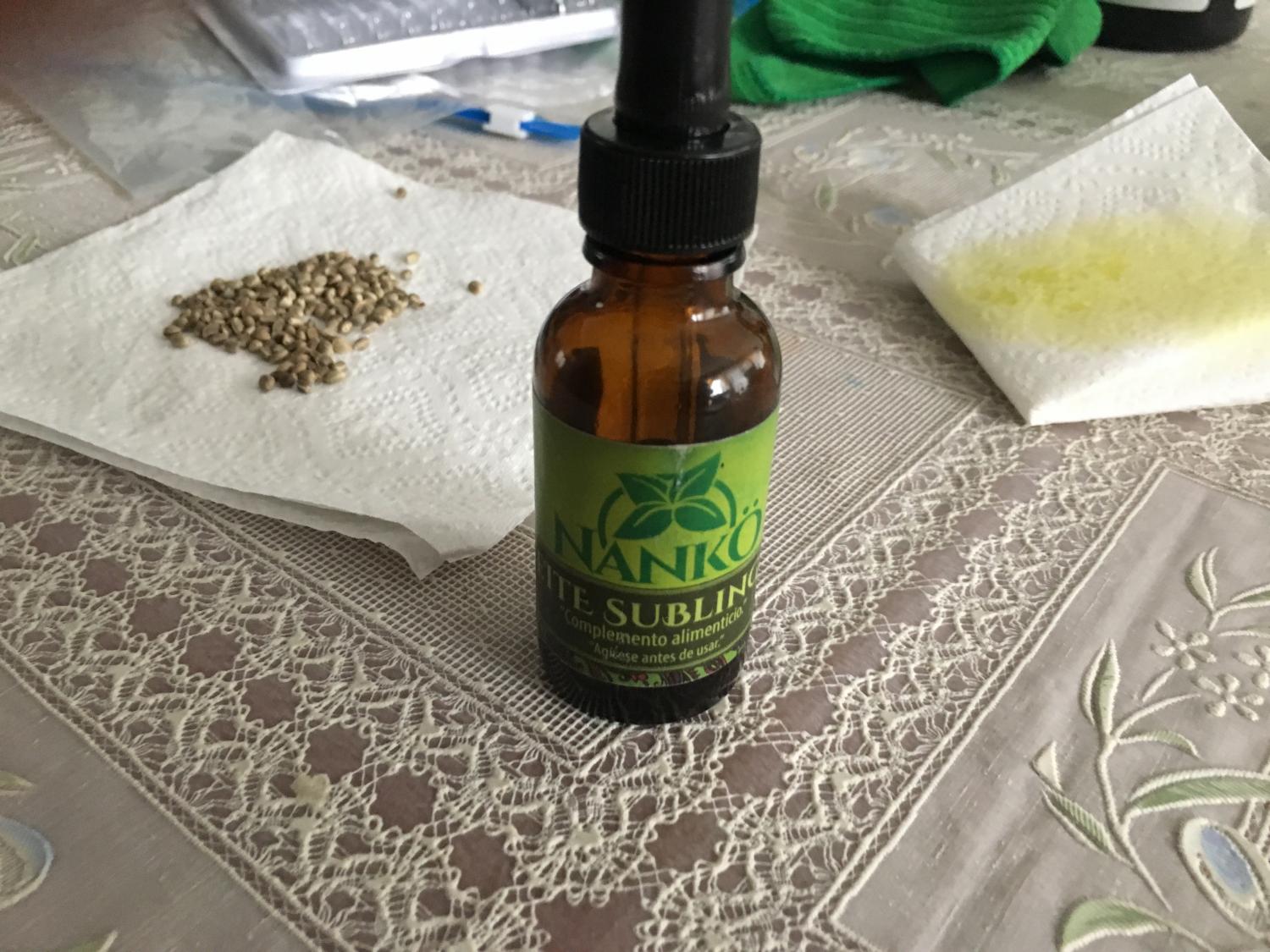Yes, Mexico Legalizes Medical Marijuana — But What's 'Medical' Use And Who Will Benefit?
Margarita Garfias lives in a typical middle-class building in Mexico City. There’s a doorman, and up a short elevator flight, an apartment with a small balcony and enough rooms for her, her husband and their son and daughter.
Carlos Antonio, the younger of the two, suffered a cardiac arrest just after birth and was diagnosed with near loss of brain function. Since then, Garfias has dedicated herself to taking care of him, becoming well acquainted with his frequent epileptic seizures and the thousands of dollars the family has spent on medicine and occasional hospitalizations.
But early last year, Garfias started giving Carlos something she got on the black market: oil extracted from marijuana. He now seems more connected and the seizures seem to be in the past, she said. A jar about the size of an eye-drops jar containing the oil cost her about $35.
"Only rich people can get afford to get sick in this country," Garfias said, sarcastically.
Mexican President Enrique Peña Nieto approved in June a law delegating the Health Ministry with writing rules for the medical use of marijuana. But at least until then, what Garfias is doing is illegal.

Carlos Antonio, a 13-year-old from Mexico City, had been suffering from frequent epileptic seizures until he began taking daily drops of this marijuana-based oil last year, his mother said.
Many politicians such as Jose Luis Oliveros Usasiaga, a member of the center-right National Action Party and former youth committee leader in the lower chamber of congress, opposed the legislation when it was being debated.
"My opposition, of course, was to addiction. It felt like giving a child a gun to play with," Oliveros Usasiaga said. (He added that since he has stepped down from Congress, he has changed his position and would now support the legislation.)
A few top Mexican court rulings sided with the use of hemp oil and the recreational use of marijuana. This prompted the Health Ministry to organize public forums and Peña Nieto to eventually give a speech at the United Nations, lamenting the human toll of the country’s decade-long drug war against drug traffickers, and pledging to push for legislation allowing the medical use and scientific research of marijuana.
"Thousands of lives depend on this," Peña Nieto said to applause from other dignitaries.
So does this mean Mexico will suddenly legalize marijuana for recreational use in the way Colorado has or for medical use in the way states like Arizona have?

"No, no, no. We’re still far from that," said Alejandro Madrazo, a law professor and head of the drug policy institute at Mexico’s Center for Research and Teaching in Economics, or CIDE for its initials in Spanish.
Given the Mexican government’s no-to-drugs, tough-on-crime history, Madrazo expects the Health Ministry to issue very conservative rules, he said. This potentially means only the use of hemp oil, as is the case in states with conservative legislatures such as North Carolina.
But, Madrazo adds, the new law opens the door for future administrations to write more broadly applicable rules for the medical use of marijuana or for recreational use. It also means Mexican pharmaceutical companies could be allowed to file for marijuana product patents that are valid in countries where Mexico has trade treaties.
"Under this law, we could have a booming medical marijuana industry in Mexico that projects Mexico as a powerhouse for the development of medicines in the world," Madrazo said.
The Health Ministry has until the end of the year to issue its rules. In the meantime, mothers like Margarita Garfias say they’re not going to wait.
Breaking the law isn’t her biggest worry. She said she’d rather get arrested than see her son get sick.












